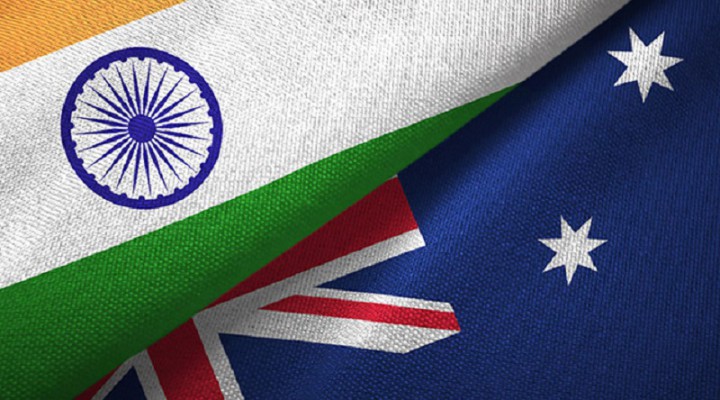Why’d The US Choose Australia Over India As Its Top Anti-Chinese Ally?

The South Asian state can never do all that the continent-sized island nation is capable of when it comes to America’s grand strategic expectations for containing the People’s Republic, including bearing the painful cost of China’s asymmetrical economic and other sorts of responses that are predicted to follow Australia’s decision.
Last week’s creation of the trilateral Australia-UK-US (AUKUS) military alliance against China conspicuously excluded India despite the South Asian state having literally fought an unofficial border war with the People’s Republic last summer. It therefore doesn’t make sense to some observers why India isn’t an official member of this bloc, especially since it’s part of the Quad that Australia and the US also participate in alongside Japan. Although it can be argued that this has actually been a blessing in disguise for India since it’ll therefore enable New Delhi to return to its policy of multi-alignment if its leadership has the political will to pragmatically react that way, this decision still deserves to be analyzed more at length.
The hyperlinked analysis above already points out how India’s refusal to abandon its S-400 deal with Russia was likely the main reason why it wasn’t invited to join this military technology-sharing organization, but there’s more to it than just that. India’s location isn’t advantageous for “containing” China despite what might have previously been thought. In fact, its proximity to the People’s Republic reduces the chances that the South Asian state will always behave as aggressively against China as America expects. This is due to simple pragmatism since India cannot antagonize China indefinitely without bearing enormous costs for doing so.
Australia, by contrast, is geographically distant from China and therefore won’t come under the same type of military pressure from it in response as India would. This grants its leadership greater strategic flexibility for provoking the People’s Republic, or so it thinks. There will of course be economic, financial, and other sorts of asymmetrical consequences, but the kinetic ones are comparatively contained. For this reason, the US is much more confident in Australia’s ability to indefinitely behave aggressively against China than India could ever realistically do.
On the topic of geography, it should be pointed out that Australia is a continent-sized island nation sitting between the Indian and Pacific Oceans that constitute the US’ recently renamed “INDOPACOM” which operates in what it describes as the “Indo-Pacific”. India is only located in its eponymous ocean while Japan is just in the Pacific so neither of those two have the strategic role that Australia does for America’s grand strategy in this space. The US will now have increased rotational warplane rights and logistical privileges in its AUKUS ally’s territory that will in turn enable the Pentagon to simultaneously project influence and force in both oceans.
Another aspect to draw attention to is how the Australian leadership is united in its belief that China constitutes their most comprehensive national security threat and must therefore be contained by all means possible despite the physical, financial, and other costs involved. India can never have such unity of purpose and the political will to do everything possible to contain China including bearing the self-inflicted costs involved because it cooperates with the People’s Republic through BRICS and the SCO. It also hasn’t fully submitted to America’s anti-Chinese demands over the past few years either since it still practices a form of multi-alignment.
The last factor is taboo to talk about but must nevertheless be addressed, and that’s the so-called “cultural compatibility” between the Anglo-American nations. Cultural and civilizational diversity veritably exist in this world despite the liberal-globalists’ best efforts to erase it by replacing everyone else’s with their own. All cultures, civilizations, religions, etc. should be treated with respect, but their differences also cannot be denied. Simply put, those who comprise the US’ permanent military, intelligence, and diplomatic bureaucracies (“deep state”) find it easier to work with their fellow Anglo-Saxons in Australia than with culturally different India.
With these factors in mind, it becomes obvious in hindsight why Australia was chosen by the US over India to be its top anti-Chinese ally. The South Asian state can never do all that the continent-sized island nation is capable of in these respects when it comes to America’s grand strategic expectations, including bearing the painful cost of China’s asymmetrical economic and other sorts of responses that are predicted to follow Australia’s decision. As was mentioned at the beginning of the analysis, this is actually a blessing in disguise for India since it might hopefully inspire its leadership to return to its policy of multi-alignment and therefore bolster multipolarity.
 TheAltWorld
TheAltWorld 
0 thoughts on “Why’d The US Choose Australia Over India As Its Top Anti-Chinese Ally?”